Description
Importance of Suboxone Clinics in Opioid Recovery
A Suboxone clinic treats opioid addiction using a structured medical approach focused on medication-assisted therapy.
Healthcare professionals assess each patient’s opioid use and health status to determine an appropriate treatment strategy.
These clinics use Suboxone, a product that contains buprenorphine to reduce opioid cravings and naloxone to block the effects of opioid abuse.
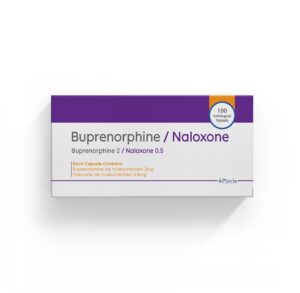
Treatment often begins with detoxification, where patients are helped to wean themselves off dangerous opioids under close supervision and clinical support.
Once stabilized, patients receive ongoing medication management to maintain recovery and prevent relapse.
The clinics also provide essential counseling, behavioral therapy, and group sessions to address emotional and mental health issues.
Regular follow-up visits include drug testing and health assessments to adjust dosages and monitor progress.
These programs promote ongoing engagement, making recovery goals clearer and more achievable for patients.
Suboxone clinics often develop long-term care plans that promote sobriety after initial treatment.
Many clinics offer flexible payment options and accept insurance to improve access to support for more people who need it.
What is Suboxone and How Does It Work?
Suboxone currently helps patients overcome opioid addiction by minimizing withdrawal pain and reducing intense cravings.
This medication combines buprenorphine and naloxone to block the effects of opioids and prevent abuse and accidental overdoses.
Also, this medication is effective because it targets brain receptors without causing euphoria or sedation.
Clinics prescribe Suboxone to support patients during their recovery, without the need for daily visits like methadone programs.
Patients have more control and freedom because Suboxone provides long-term treatment with less risk of physical dependence.
Suboxone clinics offer personalized recovery plans.
The clinics develop individualized recovery strategies, focused on each patient’s medical, psychological, and lifestyle challenges.
Doctors assess addiction history, physical health, and emotional needs to ensure effective Suboxone treatment.
These clinics provide holistic care for each patient by combining therapy, medication, and social support.
They also encourage long-term progress by scheduling regular appointments, adjusting dosages, and providing ongoing emotional support.
By providing a judgment-free environment, Suboxone clinics promote a safe, respectful, and medically supervised recovery.
Reasons Patients Choose Suboxone Over Other Treatment Options.
Suboxone is chosen because it reduces withdrawal symptoms without causing the intense euphoria associated with opioids.
It provides a ceiling effect, so higher doses do not result in stronger, drug-like feelings or risks.
Naloxone acts as an abuse deterrent by causing a withdrawal syndrome if injected incorrectly or used irresponsibly.
Patients prefer this medication because it restores functionality and daily stability without causing sedation.
Suboxone gives patients hope by allowing them to regain control without the risk of addiction or harming their health.
The Suboxone Clinic Process.
Suboxone clinics begin with a comprehensive assessment to understand each patient’s physical and psychological history of use.
Doctors initiate treatment during withdrawal to ensure the body is responding positively to the drug’s unique chemical formula.
After induction, clinics adjust dosage based on patient feedback, symptom management, and signs of emotional stability.
Regular follow-up helps monitor progress and prevent abuse or relapse during the maintenance phase of recovery.
Staff continually monitor patient well-being, dosage tolerance, and treatment success for long-term improvement.
Clinics Offer Services Beyond Medication
Suboxone clinics offer therapy sessions that teach patients how to manage their problems and healthily regulate their emotions.
Group meetings provide support for patients to share their experiences, reduce shame, and build a strong recovery community.
Case managers help patients find employment, housing, or transportation to overcome obstacles in their lives.
Clinics also work with outside healthcare providers to ensure complete physical and mental well-being during recovery.
Patients feel supported because clinics focus on the whole person, not just the substance use disorder.
Who is eligible for Suboxone clinic treatment?
Suboxone clinics accept people who are suffering from opioid addiction, whether they are using heroin, fentanyl, or prescription painkillers.
Patients with moderate withdrawal symptoms are ideal candidates for immediate medically supervised Suboxone treatment.
Even people who have previously relapsed are welcome and supported in their new goals and treatment plans.
Clinics require an initial assessment to determine the severity of the addiction and ensure that Suboxone is an appropriate medical solution.
By removing judgment, clinics encourage more people to seek help and begin their recovery right away.
Why is therapy still needed alongside Suboxone?
Therapy helps patients understand emotional triggers, prevent relapse, and maintain self-awareness during treatment.
Suboxone controls physical cravings, while psychological support addresses underlying trauma and unhealthy behaviors.
Therapists use cognitive behavioral therapy, motivational interviewing, and relapse prevention strategies to achieve lasting change.
Patients learn new ways to manage stress and repair relationships without medication.
Through ongoing therapy, Suboxone treatment becomes more effective, stable, and emotionally restorative over time.
Suboxone Clinics Transform Rural and Urban Communities
Suboxone clinics expand access to addiction treatment in areas where care options were previously limited or nonexistent.
In rural communities, mobile units reach isolated areas and help patients quickly begin medication-assisted recovery.
Urban clinics offer flexible hours, including walk-ins and same-day appointments, for immediate access to treatment.
Both settings contribute to lower overdose rates, stronger communities, and greater public awareness of opioid addiction.
Clinics become trusted resources by welcoming patients wherever they go and providing guidance.
Understanding How to Take Suboxone
Suboxone comes in the form of a film or tablet that is placed under the tongue for slow dissolution.
Patients are advised not to chew or swallow the medication, as this can significantly reduce its effectiveness.
The daily dosage is adjusted based on the body’s response and control of cravings for the medication.
Doctors monitor for side effects and ensure that the dosage provides consistent symptom relief without causing sedation.
Suboxone produces consistent results when taken as directed and under close medical supervision.
Possible Side Effects and Safety Concerns
Suboxone can cause mild side effects such as nausea, dizziness, headache, constipation, or temporary mood swings.
Doctors regularly monitor patients for serious reactions or rare complications related to liver or respiratory function.
When combined with alcohol or benzodiazepines, Suboxone can slow breathing and cause life-threatening effects in susceptible individuals.
Most side effects are manageable if reported promptly and treated during routine medical checkups.
Clinics educate patients about medication safety and encourage open communication during treatment.
Choosing the Right Suboxone Clinic is Important
Patients should research clinics carefully and choose qualified professionals who provide personalized, addiction-friendly care.
Ideal clinics offer counseling, flexible hours, medication monitoring, and supportive resources in a welcoming environment.
Checking insurance coverage or sliding scale rates helps patients manage their healthcare costs.
The best clinics focus on long-term recovery goals, not just short-term symptom management or quick fixes.
Choosing the right clinic gives patients a much greater chance of success and full recovery.
How Suboxone Clinics Give Patients a New Chance
Suboxone clinics are helping thousands of people regain control, regain their confidence, and build a life free of opioid addiction.
These clinics offer more than just medication: they provide guidance, compassion, support, and understanding throughout each patient’s recovery.
Recovery is made possible because the clinics offer genuine hope, empowerment, and the tools needed for lasting sobriety. Patients experience transformation through comprehensive support from people who believe in their potential. Each visit to the clinic brings them one step closer to health, stability, and lasting freedom from opioids.
Buy Suboxone online.
Buy Suboxone online from reputable pharmacies that offer authentic and effective medications for the treatment of opioid addiction. Suboxone helps reduce drug cravings and withdrawal symptoms, thus promoting recovery. Shopping online is easy, affordable, and discreet thanks to secure shipping and packaging. Trusted vendors guarantee authentic products, ensuring your safety and the effectiveness of your treatment. Whether you are starting or continuing your treatment, ordering Suboxone online allows you to maintain your privacy and take control of your recovery. Enjoy easy, secure transactions and fast home delivery. Choose reliable online pharmacies that will help you with confidence and support every step of your opioid addiction. Your path to better health begins with safe and accessible Suboxone medications.
FAQ.
1. What is Suboxone?
Suboxone is a medication that contains buprenorphine (which reduces cravings) and naloxone (which prevents abuse) and is used to treat opioid addiction.
2. How does Suboxone work?
Buprenorphine relieves withdrawal symptoms and cravings, while naloxone blocks the effects of opioids when abused.
3. What is Suboxone used for?
It treats opioid addiction by stabilizing withdrawal and reducing the risk of relapse.
4. How do I use Suboxone?
It is available as a sublingual film or as a tablet to dissolve under the tongue and is prescribed by a doctor.
5. Can Suboxone have a psychotropic effect?
Unlikely when used correctly due to the ceiling effect and the effects of naloxone.
6. What are the side effects?
Common side effects include nausea, headache, constipation, and drowsiness.
7. Is Suboxone addictive?
Its abuse potential is lower than traditional opioids, but it can lead to addiction.
8. Can you overdose on Suboxone?
It is rarely used alone, but is dangerous when combined with depressants such as alcohol or benzodiazepines.
9. How long does Suboxone treatment last?
It ranges from short-term detox to long-term maintenance therapy, always under medical supervision.
10. Does Suboxone detect drug tests?
Yes, standard opioid screening tests detect buprenorphine.

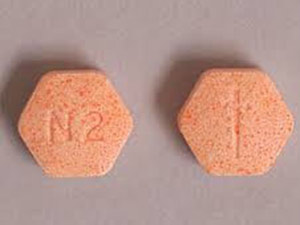
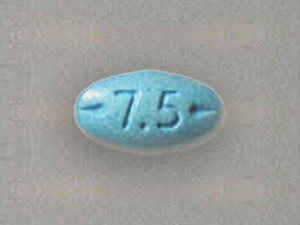
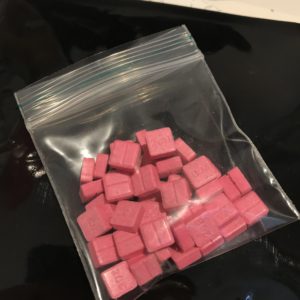
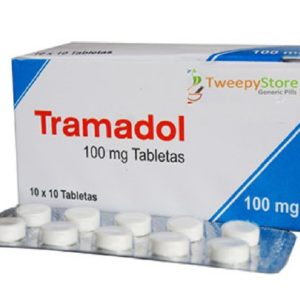
Ezra Mirabel –
“It’s a game changer.